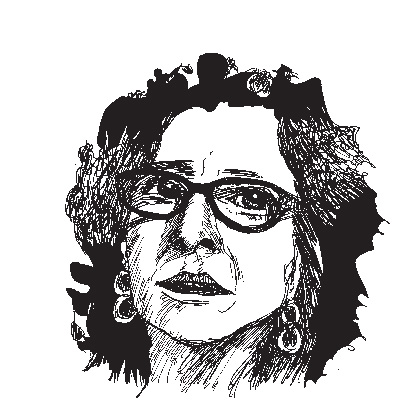The Catalan resort town of Blanes, Spain, last summer commemorated the tenth anniversary of Roberto Bolaño’s death with “Homenatge: Bolaño a Blanes,” a three-month series of memorial events emphasizing the Chilean author’s connection with the city, where he spent the last two decades of his life. The Homenatge included the “Nocturn de Bolaño,” during which more than twenty locals read excerpts from his work with occasional jazz interludes; several lectures and roundtables; and the unveiling of a self-guided walking tour of Blanes, the Ruta Bolaño.
Handsome red-and-black plaques now mark important Bolaño sites in Blanes. They range from the deeply intimate—the progression of homes and studios Bolaño occupied; Videoclub Serra, the video store owned by his close friend Narcís Serra; the pharmacy where he collected the medication for his afflicted liver—to sites of literary relevance, like Joker Jocs, the shop where Bolaño purchased the strategy games so compellingly fictionalized in The Third Reich, and the seaside streets that inspired the setting of The Skating Rink.
Speaking alongside the mayor of Blanes and the Catalan minister of culture, Bolaño’s widow, Carolina López, thanked the city and its library for memorializing her late husband. She was accompanied by their two children, Lautaro, twenty-three, and Alexandra, twelve, who have their father’s shining black hair. It was a rare public appearance for a woman who has avoided and at times refused publicity.
I met Carolina López at Es Blanc, the café lounge that serves as Blanes’s unofficial social hub. At fifty-three years old, she is petite with curly brown hair, her wide hazel eyes magnified by oblong eyeglasses. As the first American writer to interview López, I wasn’t sure what to expect, but she surprised me with her generosity and openness, her ribald and easy sense of humor, and most of all with the insightful and incisive wisdom that has guided her management of Bolaño’s estate.
When speaking of her decision to pursue legal action against parties including Mónica Maristain, author of an unauthorized biography of Bolaño, and Carmen Pérez de Vega, a woman who claims intimate involvement with the author in the last years of his life, López was measured and clear. In her biography, Maristain casts unfounded aspersions on López and Bolaño’s relationship, effectively arguing against López’s primacy in the author’s life and creative process and claiming that Pérez de Vega “wakes an obsession in Bolaño’s legal widow and heiress, Carolina López.” Since Bolaño’s death, Pérez de Vega has sold stories about the author’s last days to magazines and newspapers, seeking the public role of widow that López has eschewed out of a desire to protect her children’s privacy and her husband’s legacy.
...You have reached your article limit
Sign up for a digital subscription and continue reading all new issues, plus our entire archives, for just $1.50/month.
Already a subscriber? Sign in





